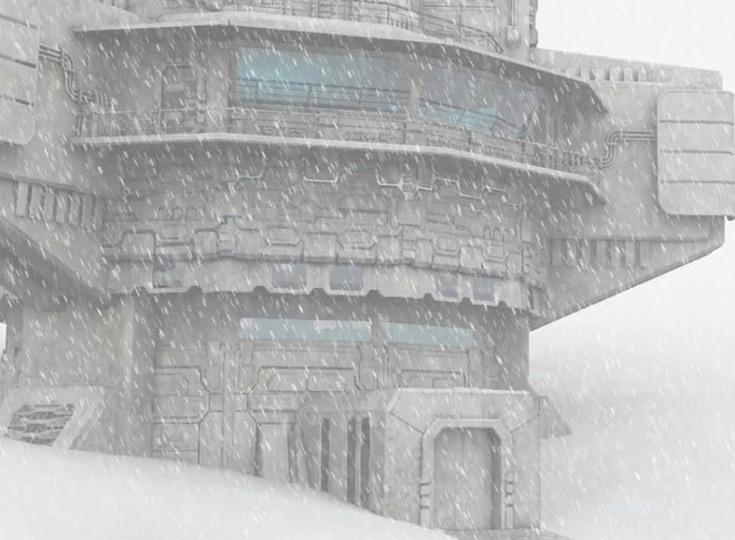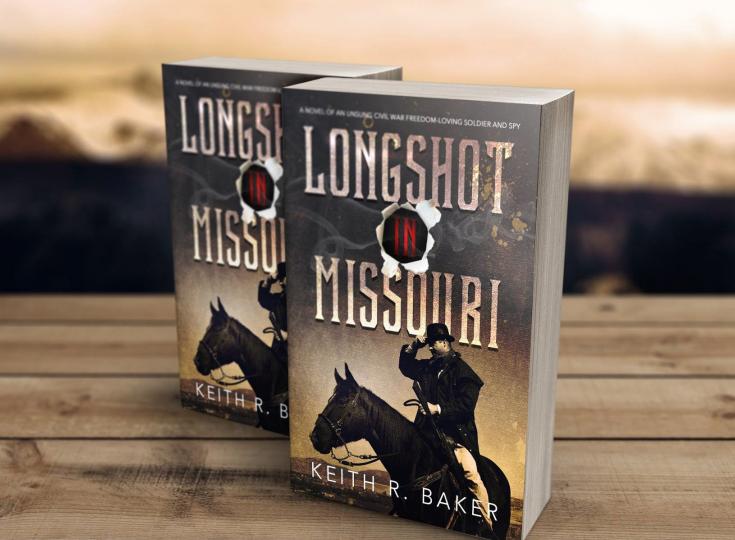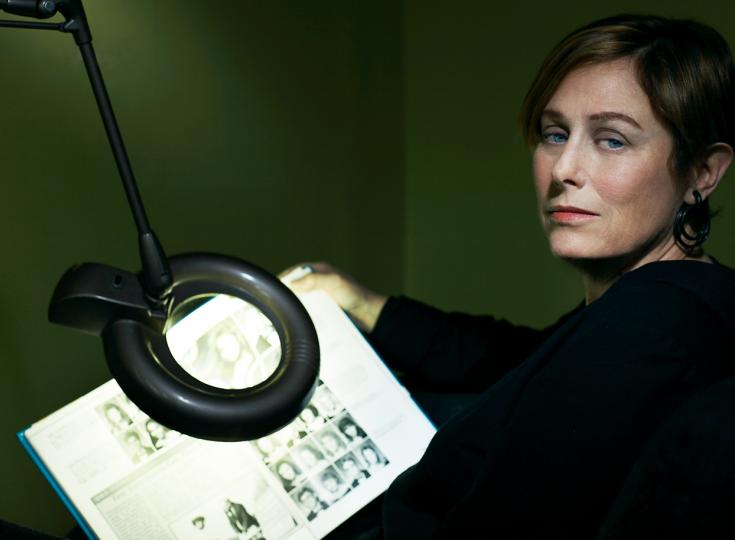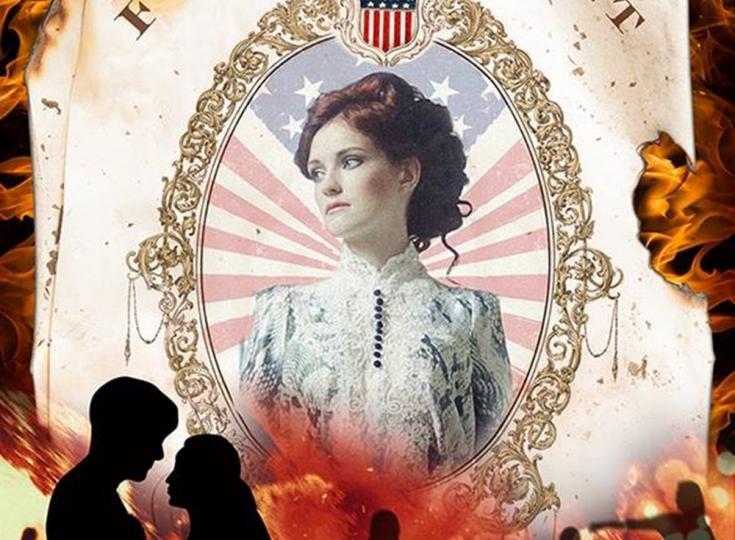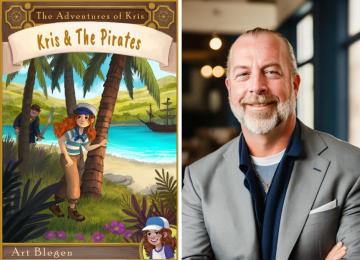Dmitry Radbel - Action-Packed Books About Serious Topics

Dmitry Radbel, a.k.a. D.R. Bell, writes action-packed books that touch on serious topics and his book, Marshland, is no exception. Having grown up in the Soviet Union, Radbel likes to write about themes such as seduction of power, inequality and its impact on the society, consequences of financial policies, technological evolution and the global struggle for supremacy. As our author of the day, Radbel talks with us about every day people, conspiracies and what we can expect from his pen next.
Please give us a short introduction to what Marshland is about
Marshland is a story of a man trying to solve the mystery of his friend’s suicide and uncovering a conspiracy. For Ben, the protagonist, the investigation takes on a redemptive quality. Underneath the “who done it” I have tried to explore a relationship between an individual and a group he is a part of, from a local neighborhood and dynamics of workplace to the whole society.
Why the theme of an everyday man untangling a conspiracy? What appealed to you about this concept?
Heroes of all my books are everyday men and women. Stories about James Bond or Jason Bourne are quite entertaining but I want to create characters that I – and hopefully the readers – can realistically relate to and feel empowered by. I think most of us want to identify with and cheer for an underdog. Like in the Lord of the Rings where it’s a little hobbit who defeats evil.
You grew up in the former Soviet Union. How has this influenced your writing?
By the time I grew up the Soviet Union largely turned into a cynical and thoroughly corrupt oligarchy. Nobody any longer took the communist ideology seriously. It was just accepted that there are different rules for different people, that one has to pretend to be politically correct, that massive surveillance forces obedience. Having experienced this, I am probably more sensitive to and less tolerant of government’s corruption and invasion of individuals’ privacy and rights. This is one of the recurring themes in my books. To quote Primo Levi, “It is the duty of righteous men to make war on all undeserved privilege, but one must not forget that this is a war without end”.
Do your books have a hidden message that you are trying to convey to your readers?
No deeply hidden messages but I try to tackle serious topics and “wrap” them into a thriller. I have nothing against purely entertaining books but that’s not my style. I like reading stories that make me think and question. In my books you’ll find such themes as seduction of power, free will and individual responsibility, America’s role in the world, economic stratification and societal inequality, surveillance vs. privacy, free market vs. crony capitalism, etc. But I do my best to avoid preaching J
Ben is a bit of a loner, spending most of his time on the Internet. Why did you give him this back story?
Everyday people generally don’t investigate murders or suicides. In my other books the heroes are forced into the challenge by circumstances, largely against their will. In Marshland I wanted the protagonist to get involved voluntarily. I wanted him to be an everyman who had had more than his share of tragedies and disappointments, who seems to be the least likely candidate to take on and untangle a powerful conspiracy. His quest is a way of redeeming himself, so he had to start at a fairly low point.
You call yourself an "accidental writer." Why?
I started writing pretty late in life, without planning to. If someone told me four years ago that I would be not only writing but working on my fifth novel, I would have laughed in disbelief. The immediate trigger was a death of a friend. Such moments often prompt soul searching and when I asked myself “what would I regret the most if I was told I have 72 hours left?”, I realized that I would regret never trying to write.
Another trigger was my reaction to the aftermath of the 2008 financial crisis. I expected that, like in the savings and loan crisis of the late 80’s and the Enron and Worldcom collapses in in 2001-2002, there will be real changes and punishment for criminal activities. Instead, things were largely swept under the rug, the perpetrators got away with a light slap on the wrist, nobody went to jail. This is something I would have expected in the Soviet Union, not here. But there is a price to pay for these policies: increasing inequality, disappearance of the middle class, mounting national debt. I think that rise of populist politicians, such as Sanders and Trump, is a reflection of growing anger. In my books I am trying to explore where this would lead. Marshland, like two of my other books, is set in the near future.
Readers report that Marshland had them at the edge of their seats. What are some of the tricks you use to keep your books fast-paced?
I try to keep my stories fast-paced and squeeze them into a short period of time. All the action in Marshland takes place in three weeks. I make sure that the protagonist gets into some dangerous situations along the way.
One of the themes in Marshland is how the media manipulates our thoughts and attitudes. Why did you find this theme important to explore?
Social media is a wonderful way for people to connect and keep in touch. And it’s also a powerful tool for influencing people. The social media experiments described in the Commentary section of Marshland are factual, they have taken place. It was after the book was published that the Congress started investigating Facebook for manipulating the news feeds. And I suspect that what we know is just the tip of an iceberg. Perhaps this is a reflection of my Soviet upbringing where the ruling elite used the media to influence and control the population but I think we, the individuals, should be cognizant of how social media can be used “on us” and employ our own judgment.
Do reviews and reader feedback shape your work? Or do you feel like it's better to avoid the feedback—both positive and negative—so that it won't interfere with your vision?
Neither. I appreciate reader’s feedback and I read it. At the same time statistically only about one person in three hundred or so leaves a review and the reasons can be their own. For example, there is a person that gave Marshland a “one star” on Amazon because his Kindle had a problem and he could not finish the book. This for me is not a useful feedback. I value constructive criticism but also recognize that there is no way to please everyone nor would I want to do that. A well-meaning editor of my first book wanted to make changes to “adapt” the story to what she called “the mass market” and I refused. I tell stories that I want to tell and I accept that these stories are not going to be liked by everyone.
Do you have any interesting writing habits, what's your average writing day like?
There is no average writing day J It’s like an adventure, you never know where the road will take you. I start with an idea and “try” a story outline around it and do a lot of research and the story keeps changing until it kind of “clicks into place”. But the first “click” never quite works out. It goes in fits and starts until I get into a “zone” and lock myself in for a few days and just write before I hit another writing block. I keep notebooks and flash cards and a story board. It’s sometimes amusing to look at an old notebook and see how the story ended up so different from the early idea.
Tell us about your next book. What are you working on now?
I am working on a story that deals with the Holocaust and the Armenian Genocide. The plot puts fictional char-acters into the context of actual events in order to maintain historic truth while allowing the reader to go beyond the facts and the numbers to individuals struggling with their humanity. I will admit that detailed research for the book had given me persistent nightmares but made me even more determined to pursue the project.
Was there anything in particular, an incident or something you read, that made you want to tackle this?
There was not one thing but a combination. There are many well-told stories about the Holocaust, most of them set during the Holocaust itself and focus on the victims, the perpetrators or saviors. There are not nearly as many stories of the Armenian Genocide of 2015 but – in my mind at least – there is a connection between those two tragedies. If possible, I want to paint a story across a longer time period and include survivors, bystanders and enablers - so as to understand not only what happened but how it became possible. And to bring the story down to individual acts because the moral responsibility, when all is said and done, is individual not collective. I picked the early 1960’s for the story, from my research I came to believe that that was the time when some people, in West Germany especially, gathered the courage to look back into the heart of darkness.
Where can our readers interact with you or discover more of your work?
They can visit my website drbellbooks.com, e-mail me at [email protected], check out my other books at https://www.amazon.com/D.R.-Bell/e/B00HQ5299W.
